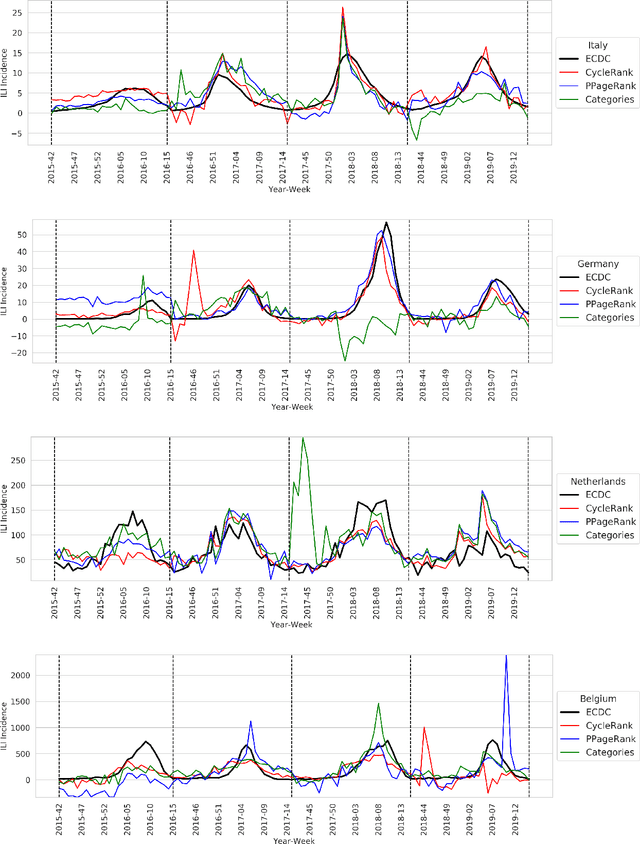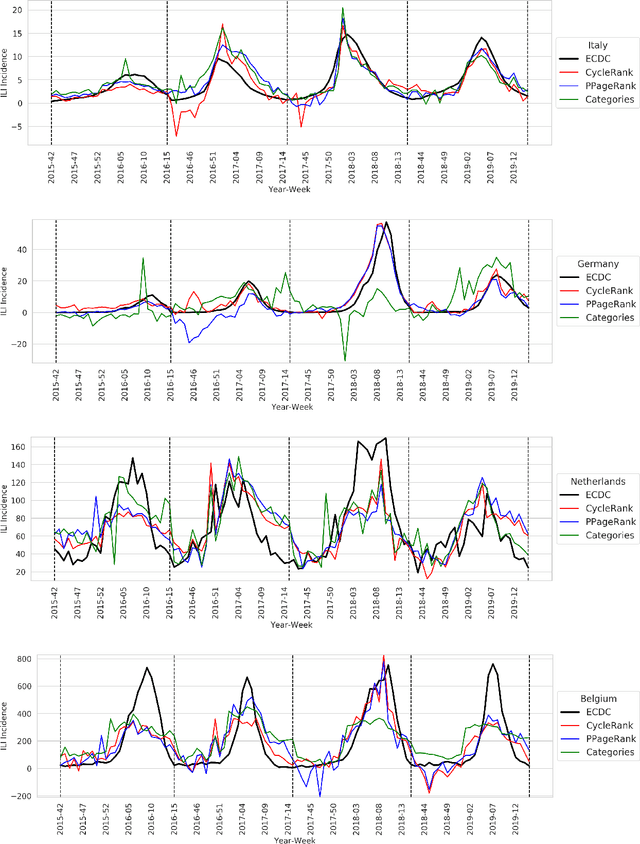Cristian Consonni
Comparing Personalized Relevance Algorithms for Directed Graphs
May 03, 2024Abstract:We present an interactive Web platform that, given a directed graph, allows identifying the most relevant nodes related to a given query node. Besides well-established algorithms such as PageRank and Personalized PageRank, the demo includes Cyclerank, a novel algorithm that addresses some of their limitations by leveraging cyclic paths to compute personalized relevance scores. Our demo design enables two use cases: (a) algorithm comparison, comparing the results obtained with different algorithms, and (b) dataset comparison, for exploring and gaining insights into a dataset and comparing it with others. We provide 50 pre-loaded datasets from Wikipedia, Twitter, and Amazon and seven algorithms. Users can upload new datasets, and new algorithms can be easily added. By showcasing efficient algorithms to compute relevance scores in directed graphs, our tool helps to uncover hidden relationships within the data, which makes of it a valuable addition to the repertoire of graph analysis algorithms.
A general method for estimating the prevalence of Influenza-Like-Symptoms with Wikipedia data
Oct 28, 2020



Abstract:Influenza is an acute respiratory seasonal disease that affects millions of people worldwide and causes thousands of deaths in Europe alone. Being able to estimate in a fast and reliable way the impact of an illness on a given country is essential to plan and organize effective countermeasures, which is now possible by leveraging unconventional data sources like web searches and visits. In this study, we show the feasibility of exploiting information about Wikipedia's page views of a selected group of articles and machine learning models to obtain accurate estimates of influenza-like illnesses incidence in four European countries: Italy, Germany, Belgium, and the Netherlands. We propose a novel language-agnostic method, based on two algorithms, Personalized PageRank and CycleRank, to automatically select the most relevant Wikipedia pages to be monitored without the need for expert supervision. We then show how our model is able to reach state-of-the-art results by comparing it with previous solutions.
 Add to Chrome
Add to Chrome Add to Firefox
Add to Firefox Add to Edge
Add to Edge